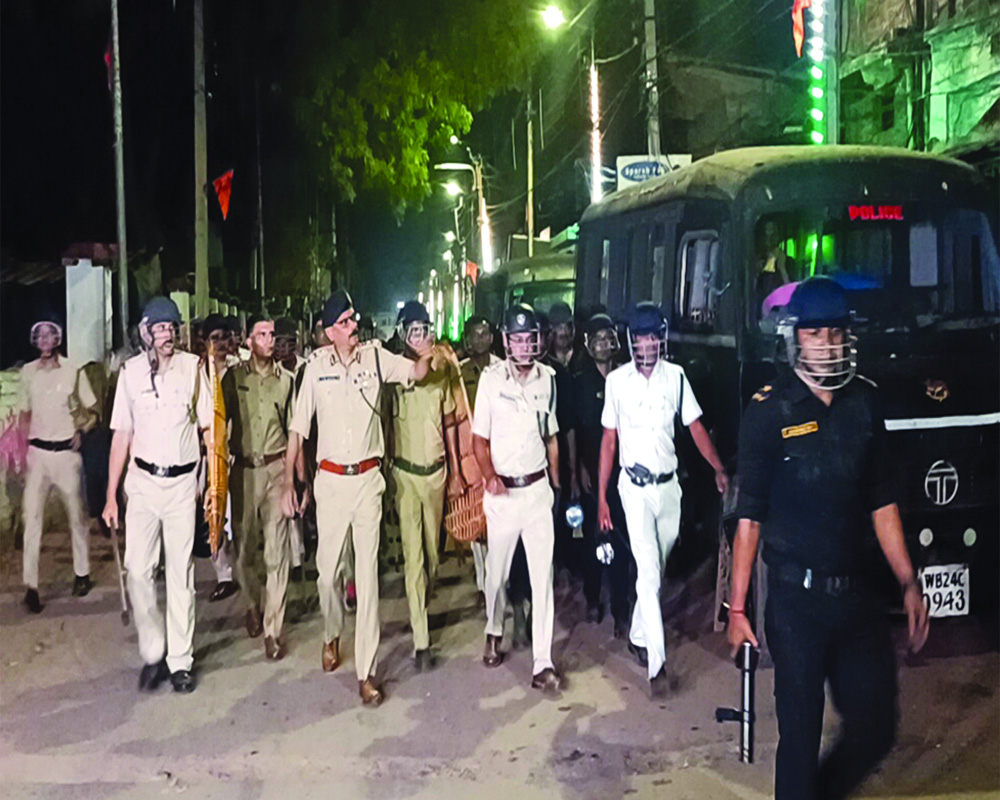Murshidabad: A tense calm hangs over Murshidabad as violent unrest linked to the contentious Waqf (Amendment) Act forces hundreds of Hindu families to abandon their homes in Dhulian. Fearful of further attacks and escalating communal tension, nearly 500 residents—including women, children, and the elderly—fled the area, crossing the Ganga river in a desperate bid for safety.
The violence has so far led to 150 arrests, and the deployment of eight BSF companies along with over 1,000 state police personnel underscores the seriousness of the crisis.
Exodus Across the River: A Scene of Panic
In a chilling and heartbreaking moment reminiscent of past communal strife, families gathered at Dhulian Ferry Ghat, clambering into overcrowded boats and crossing the river under the cover of fear. Their destination: Parlalpur High School in Kaliachak Block 3, Malda district—now transformed into an emergency shelter.
Local residents in Parlalpur, under the jurisdiction of Baishnabnagar Police Station, extended a hand of compassion, providing water and dry food to the displaced. Many refugees, visibly shaken, spoke of threats, stone-pelting, and intimidation that forced them to flee with little more than the clothes on their backs.
Opposition Raises Alarm, Accuses State of Inaction
Leader of the Opposition Suvendu Adhikari condemned the exodus, describing it as a consequence of “religiously driven fear.”
“More than 400 Hindus from Dhulian were driven by fear of religious bigots,” he said, calling on the Central Paramilitary Forces, state police, and district administration to ensure the safe return and protection of the displaced.
He went further, labelling the violence as “jihadist terror,” a statement that has intensified the political fault lines in an already volatile environment.
Judiciary Intervenes: Calcutta High Court Orders CAPF Deployment
Amid rising casualties—at least three people confirmed dead—and mounting pressure on state authorities, the Calcutta High Court issued an urgent directive on Saturday for the immediate deployment of Central Armed Police Forces (CAPF) in Murshidabad. The court criticized the state’s handling of the crisis, making it clear that the constitutional duty to protect citizens cannot be ignored.
CM Mamata Banerjee Urges Calm, Distances State from Law
In a bid to ease tensions, Chief Minister Mamata Banerjee clarified that West Bengal will not implement the Waqf (Amendment) Act, distancing the state government from the law that has been blamed for triggering the violence.
“We appeal to all to maintain peace. The state government has no role in this Act,” she stated, urging citizens to reject hatred and communal provocation.
Yet, despite her appeal, the fear on the ground remains palpable. Families continue to flee. The region, teetering on the edge of communal fracture, is being held together by emergency measures, security presence, and the hope that peace will soon return.
As Bengal edges closer to a politically charged election year, the Murshidabad crisis has added fuel to a volatile mix of religion, law, and governance—one that may have lasting implications far beyond the district’s borders.


